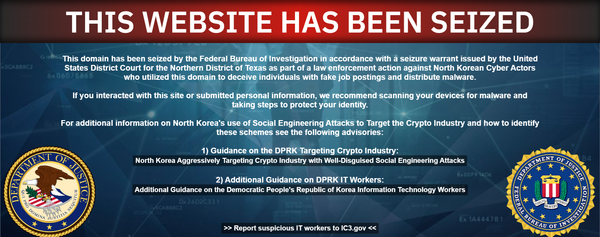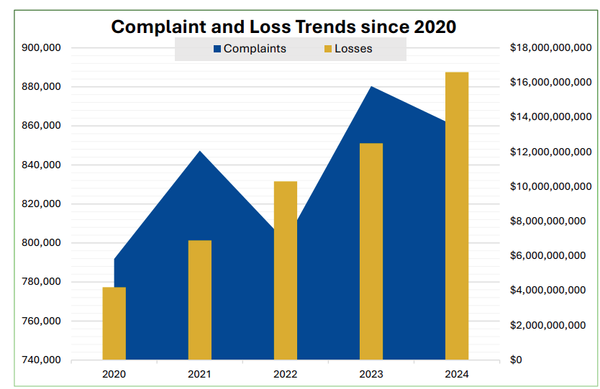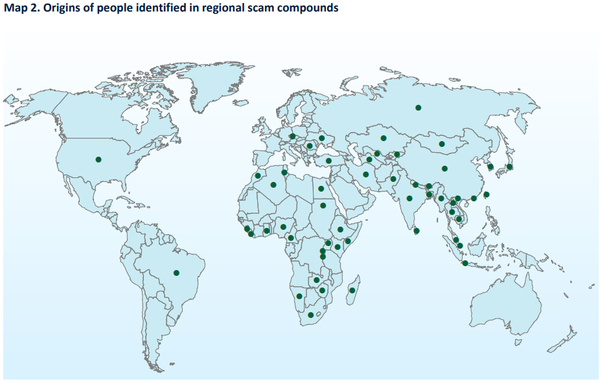Best Infosec-Related Long Reads for the Week of 1/6/24: Special Misinformation Edition

WEF says misinformation is biggest global threat, Taiwan presages years of misinformation threats, Taiwan civil groups fight China's disinformation, The US must counter disinformation in Taiwan
Metacurity is pleased to offer our free and paid subscribers this weekly digest of the best long-form (and longish) infosec-related pieces we couldn’t properly fit into our daily crush of news. So tell us what you think, and feel free to share your favorite long reads via email at info@metacurity.com. We’ll gladly credit you with a hat tip. Happy reading!
Note: This issue focuses on an unusual cluster of long-form pieces that appeared during the week devoted to the rising threats of misinformation and disinformation.

The World Economic Forum: The Global Risks Report 2024
The World Economic Forum released its annual risk report, based on a survey of more than 1,400 experts and leaders, that listed misinformation as the most severe global risk anticipated over the next two years as foreign and domestic actors seek to widen societal and political divides.
Emerging as the most severe global risk anticipated over the next two years, foreign and domestic actors alike will leverage Misinformation and disinformation to further widen societal and political divides. As close to three billion people are expected to head to the electoral polls across several economies – including Bangladesh, India, Indonesia, Mexico, Pakistan, the United Kingdom and the United States – over the next two years, the widespread use of misinformation and disinformation, and tools to disseminate it, may undermine the legitimacy of newly elected governments. Resulting unrest could range from violent protests and hate crimes to civil confrontation and terrorism.
Beyond elections, perceptions of reality are likely to also become more polarized, infiltrating the public discourse on issues ranging from public health to social justice. However, as truth is undermined, the risk of domestic propaganda and censorship will also rise in turn. In response to mis- and disinformation, governments could be increasingly empowered to control information based on what they determine to be “true”. Freedoms relating to the internet, press and access to wider sources of information that are already in decline risk descending into broader repression of information flows across a wider set of countries.
China’s meddling in Taiwan election presages year of misinformation threats
In the Washington Post, Joseph Menn, Naomi Nix, Cat Zakrzewski, and Pranshu Verma delve into China’s massive use of misinformation in crucial election contests in Taiwan that could presage the use of similar tactics in countries that represent over half of the world’s population, including Indonesia, Pakistan, Mexico, Russia, the United States, India, the EU, and the UK.
While the Chinese government is the biggest power interfering in Taiwan, which Beijing views as part of its territory, it is just one of multiple nations likely to meddle in elections elsewhere this year, especially in the United States, experts said. China, for example, has been ramping up U.S. information operations and triggered multiple takedowns of fake accounts at Facebook, while Russia is trying to dissuade European countries from supporting Ukraine.
The rise in election interference comes as tools for disguising where messages originate are getting better, while the major social media platforms are cutting back on rules and enforcement. Meanwhile, few nations called out for interference in the past have been punished, beyond sanctions against some Russian officials and executives.
The Taiwan election is “the canary in the coal mine,” said Katie Harbath, a former public policy official at Meta, owner of Facebook and Instagram. It’s “a sense of what we might see throughout the rest of this year.”
Can China Swing Taiwan’s Elections?
In Foreign Affairs, Kenyon Thibaut, Senior Resident Fellow for China at the Atlantic Council’s Digital Forensic Research Lab, profiles how a network of Taiwanese civil society groups, is pioneering new ways to battle Chinese interference in its upcoming elections, including through new advanced anti-disinformation efforts.
Combating Chinese proxies can be more challenging. But Taiwan’s responses to Beijing’s meddling are getting better. Taiwanese civil society groups devoted to combating international disinformation have become leaders in their field, including by developing new AI tools. These tools can quickly scan and flag posts on social media platforms for misleading content—including content that Chinese proxies took out of context or used with incomplete information. The groups’ media literacy and social resilience programs are also focused on keeping up with the CCP’s tactics. One nonprofit organization launched in June 2022, Kuma Academy, runs training programs designed to educate the public on China’s evolving tactics to influence Taiwan’s political, social, and information space. Its classes are immensely popular, with thousands of people on the waitlist for Kuma’s monthly basic training courses.
The work of these groups is complemented by Taipei’s efforts. The island’s inaugural digital minister, Audrey Tang, has leveraged technology to improve democratic participation and keep Taiwan’s media open and accurate. In the lead-up to the election, for example, the ministry has worked with civil society organizations to leverage AI tools such as ChatGPT to create bots that flag, categorize, and debunk potentially misleading content online in almost real time. To tackle disinformation efforts more directly, Taiwan’s government set up a task force in 2023 that brings together different departments—including the Digital Affairs Ministry, the Ministry of Education, the Central Election Commission, and the Ministry of Justice—to monitor the Internet and media for signs of information manipulation surrounding the election.
The U.S. Can Help Fight China’s Disinformation in Taiwan
In Foreign Policy, US Democratic representative Raja Krishnamoorthi, ranking member of the House Select Committee on the Strategic Competition Between the United States and the Chinese Communist Party, argues that the US must counter China’s efforts to interfere in Taiwan’s election using online tools such as content farms, bots, messaging apps to spread disinformation to protect against similar digital malfeasance in US elections.
The success of Taiwan’s democracy is why the CCP actively seeks to manipulate political discourse not just in Taiwan, but also in other democracies that question Beijing’s narrative. Using a series of hundreds of fake Facebook accounts, a coordinated disinformation campaign linked to the CCP tried to divide Taiwanese society by reposting misleading TikTok videos about the island’s political parties. A fake poll suggesting the people of Taiwan preferred a Beijing-supported candidate was disseminated widely across media last month; police later found that the entire poll was fabricated.
When Australia called for an inquiry into the origins of COVID-19, the CCP lashed out with a ban on some agricultural imports, ramping up its political interference campaign. We know that the CCP will only expand its efforts to interfere in democratic elections worldwide. According to the Office of the Director of National Intelligence, the CCP interfered more in the 2022 U.S. midterm elections than it has in previous cycles, through messaging campaigns on TikTok and other efforts to “portray the U.S. democratic model as chaotic, ineffective, and unrepresentative.”
The fundamental point is this: Taiwan’s future, and the future of any democracy, must be decided by its voters—not by influence campaigns run out of foreign capitals. On top of Taiwan’s robust democratic safeguards, there is strong bipartisan support in the U.S. Congress for initiatives to push back against these threats—not only in Taiwan but around the world.




